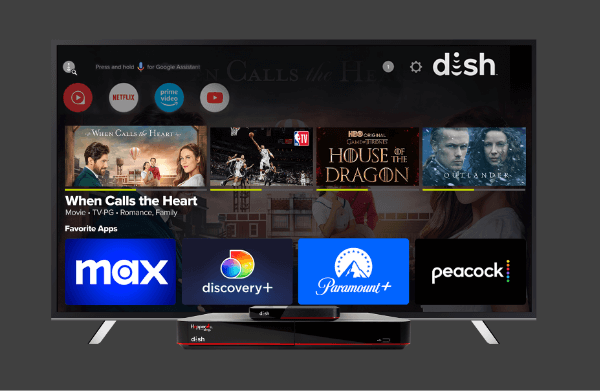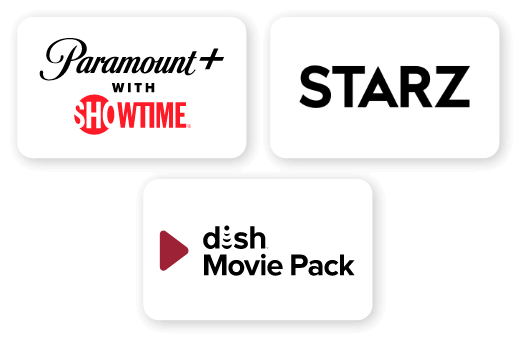Transformative Net Neutrality 2025: Current Status and What It Means for Consumers
Table of Contents
Imagine opening your internet browser only to discover that your favorite streaming service now takes twice as long to load because your internet provider prefers their own streaming platform. Or picture trying to video chat with your family, but the connection keeps freezing because your ISP has designated video calls as “non-priority" traffic. This is the world that net neutrality advocates have been fighting to prevent for nearly two decades—and in 2025, the battle has reached another pivotal turning point.
In January 2025, the U.S. Court of Appeals for the Sixth Circuit struck down the Federal Communications Commission’s 2024 Safeguarding and Securing the Open Internet Order, potentially ending federal net neutrality regulations as we’ve known them [1]. What does this mean for your internet access, and why should you care? Let’s dive into the current state of net neutrality and how it affects every aspect of your online life.
What Is Net Neutrality and Why Does It Matter?
Net neutrality is the principle that Internet Service Providers (ISPs) should treat all internet traffic equally. Under net neutrality rules, ISPs cannot block, throttle, or create “fast lanes" for specific websites or services. In essence, net neutrality ensures that the internet remains an open and level playing field for everyone, from giant tech companies to small startups, from major news outlets to independent bloggers.
Without net neutrality protections, ISPs could potentially:
- Charge premium fees for faster access to certain websites
- Slow down competing services (like throttling Netflix to promote their own streaming platform)
- Block access to certain websites or applications altogether
- Create “tiered" internet packages similar to cable TV channels
- Bury search results that paint them in a negative light
For consumers, net neutrality isn’t just a technical policy—it’s about ensuring equal access to information, preserving innovation, and protecting freedom of choice. When you pay for internet service, net neutrality advocates argue you should get the whole internet, not just the parts your provider prefers you to see.

A roller coster of decisions
The History of Net Neutrality Regulations
The fight over net neutrality has been a back-and-forth battle for years, with each administration taking a different approach:
Obama Era: The First Major Net Neutrality Rules
In 2015, under President Obama, the FCC classified broadband internet as a “telecommunications service" under Title II of the Communications Act of 1934 [2]. This classification allowed the FCC to regulate ISPs as “common carriers," similar to telephone companies, ensuring they couldn’t discriminate against certain internet traffic.
Trump Era: Repeal of Net Neutrality
In 2018, during President Trump’s administration, the FCC reversed course with the “Restoring Internet Freedom" rule, which reclassified broadband as an “information service" rather than a telecommunications service [3]. This effectively repealed the net neutrality protections put in place under Obama.
Biden Era: Reinstatement Attempt
In 2024, the Biden administration’s FCC tried to restore net neutrality by issuing the “Safeguarding and Securing the Open Internet" order, once again classifying broadband internet as a telecommunications service subject to stricter regulations [4].
2025 Sixth Circuit Court Decision: The Latest Chapter
In January 2025, the U.S. Court of Appeals for the Sixth Circuit struck down the FCC’s 2024 order, ruling that the FCC incorrectly classified ISPs as telecommunications service providers rather than providers of “information services." The court determined that ISPs do more than simply transmit data—they offer consumers the capacity to “generate, acquire, store, transform, process, retrieve, utilize, and make available information and data."
This ruling effectively ended the FCC’s attempt to regulate net neutrality at the federal level through its own authority, putting the ball firmly in Congress’s court to enact legislation if net neutrality is to be preserved at the federal level [5].
The Arguments For and Against Net Neutrality
Like many complex issues, there are reasonable arguments on both sides of the net neutrality debate.
Pro-Net Neutrality Arguments
Advocates for net neutrality raise several compelling points:
- Equal Access: All internet users deserve equal access to online content without ISP interference.
- Innovation Protection: Without net neutrality, startups might struggle to compete with established players who can afford to pay for “fast lane" access.
- Free Speech Concerns: ISPs could block or slow access to content with political or social views they disagree with.
- Competition: Regulations will prevent ISPs from favoring their own services over competitors.
- Consumer Choice: Users should decide what content they access, not their internet providers.
Anti-Net Neutrality Arguments
Those who oppose regulations also make several arguments:
- Investment Incentives: Some argue that net neutrality regulations discourage ISPs from investing in network infrastructure improvements.
- Market Freedom: Opponents believe the free market should determine how ISPs offer service at various levels and price points.
- Flexible Business Models: Without net neutrality rules, ISPs could develop new business models that might benefit some consumers.
- Existing Protections: Some argue that antitrust laws, consumer behavior, and public pressure are sufficient to prevent ISP abuses.
- Premium Services: Paying more for premium speeds could subsidize expanding high-speed internet access to underserved areas.

Current status
What Happens After the Court Ruling?
Federal net neutrality regulations are no longer in effect with the Sixth Circuit’s January 2025 ruling. The court determined that the FCC cannot impose these rules on ISPs under the current legal framework.
So what happens now?
FCC’s Limited Options
The FCC has a few potential paths forward:
- Supreme Court Appeal: The FCC could appeal the Sixth Circuit’s ruling to the Supreme Court, though success is far from guaranteed with the current conservative-leaning bench.
- New Regulatory Approach: The FCC might seek a different legal justification for net neutrality rules that could withstand court scrutiny.
- Coordination with Congress: The FCC could collaborate with Congress to pursue legislation explicitly granting the authority to regulate net neutrality.
State-Level Regulations Continue
Significantly, the Sixth Circuit ruling does not affect state-level net neutrality laws and regulations. States like California, Colorado, and Washington maintain their net neutrality laws, creating a patchwork of rules across the country.
Congressional Action Becomes Critical
The court’s decision puts significant pressure on Congress to act if a uniform national approach to net neutrality is desired. Democrats and Republicans have expressed interest in “big tech" reform in recent years, but whether net neutrality will be included in those efforts remains to be seen.
What Has Changed Since The First Repeal?
When net neutrality rules were first repealed in 2018, many feared immediate and drastic changes to internet service. However, the impact has been more subtle than catastrophic. Several factors have kept ISPs in check:
- Public Scrutiny: ISPs have faced significant public scrutiny and pressure to maintain open internet practices.
- State Regulations: Strong state-level net neutrality laws have prevented ISPs from implementing dramatic changes in those jurisdictions.
- Market Competition: In areas with multiple ISP options, competition has helped maintain more open internet practices.
- Ongoing Legal Battles: The uncertain regulatory environment has made ISPs cautious about making significant changes that might later be ruled illegal.
Still, without these protections, there have been some concerning developments:
- Some ISPs implemented “zero-rating" plans, excluding certain apps from data charges
- Instances of throttling have been documented and have led to legal action
- The potential for more significant changes remains if regulatory uncertainty is resolved in favor of ISPs

Impact on consumers
What Does This Mean for Your Internet?
The current state of net neutrality has several implications for consumers:
Potential Price Changes
ISPs could implement tiered pricing models without net neutrality protections, charging more for access to certain content or services. This could mean paying premium prices for gaming, streaming, or social media access.
Quality of Service Variations
Your internet experience might vary depending on which websites or services you’re trying to access. Services that have paid your ISP for preferential treatment could work better than those that have not.
Geographic Disparities
With state-level regulations continuing in some areas but not others, your internet experience might depend significantly on where you live. Consumers in states with strong net neutrality laws may have protections different from those without such laws.
New Service Models
ISPs might introduce new service packages and models, potentially creating both opportunities and challenges for consumers. Some might benefit from specialized packages tailored to their needs, while others might find their options limited or more expensive.
The Digital Divide
Net neutrality is closely tied to broader concerns about the digital divide—the gap between those with reliable access to high-speed internet and those without. The COVID-19 pandemic highlighted how essential internet access is for work, education, healthcare, and social connection.
Without these protections, there’s concern that the digital divide could worsen:
- Areas that are already underserved might remain so if ISPs focus investment on more profitable markets
- Lower-income consumers might have access only to limited internet services if tiered pricing becomes widespread
- Educational and healthcare resources could become harder to access for those who can’t afford premium services
Find the Best Internet Service Providers in Your Area
Navigating the changing landscape of internet regulation makes choosing the right service provider more important than ever. Different providers have different policies on data management, traffic prioritization, and pricing structures—all of which can significantly impact your online experience.
Want to find the best internet service providers available in your area? Enter your zip code here to find the best deals and providers near you.
Want to compare internet providers? Click here for our comparison tool, which compares ISPs’ speeds, pricing, and customer satisfaction ratings side-by-side. We’ll help you understand which providers best meet your needs in today’s complex internet environment.
This blog post is for informational purposes and does not constitute legal advice. This landscape continues evolving, and readers are encouraged to consult relevant experts for the most current information.
Sources
[1] NCTA.com. “Smart Policies Net Neutrality".
[2] Congress.gov.
[3] Benton.org. “Trump, FTC, and Internet"
[4] Federalregister.gov. “Safeguarding and Securing the Open Internet to Restore Internet Freedom"
[5] Broadbandbreakfast.com. “Sixth Circuit Tosses Net Neutrality"






 Call
Call 

 Access Your Account
Access Your Account